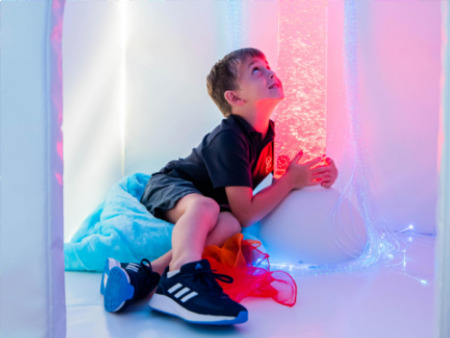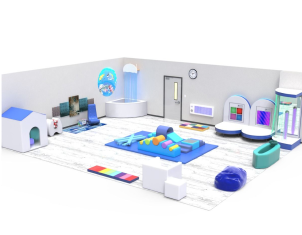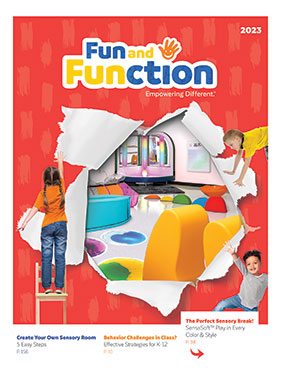In the second part of our series on advocating for your child, we'll be talking about the Individual Education Plan (IEP) process from start to finish. We'll be defining a few terms and explaining a few processes, but we'll be sticking to general information. Remember each state has its own special education laws, and two states may not necessarily interpret the Individuals with Disabilities in Education Act (IDEA) in the same way. As a parent of a child who receives special education services, it's important and invaluable to be as familiar as you can be with the laws in your state as well as the policies of your school district. There are many sites online which do a wonderful job of explaining the law in easy-to-understand language. We'll be providing a list of resources for more information at the end of the series.
The Individual Education Plan is a legal document which explains the special education services your child receives and gives the rationale for providing these services. The IEP includes several sections, each of which outlines a particular area of the special education process. Most IEPs follow a similar format.
- Demographic data. This is basic information about your child, including name, address, guardian's names, age, birthdate and teacher. Your child's disability (or disabilities) will be listed in the demographic data as well.
- Present performance. This section of the IEP explains how your child is currently performing in school. Usually, academic, social, functional and behavioral skills are addressed in this section. IDEA requires teachers to provide measurable proof of performance, so the information about your child's performance should be based on properly collected data. If your child is not performing at grade level in any area, the special education teacher and IEP team should be able to show you exactly why.
- Testing results. The most recent results of your child's educational testing will be listed in this area. Federal law requires each special education student be re-evaluated every three years in order to prove he or she is still eligible to receive special education services. The data from the most recent three-year re-evaluation will be included in this section.
- Accommodations and modifications. If your child requires any adjustments to the curriculum or needs any adaptive equipment or help (i.e. braille materials for a visually impaired student, specialized seating for students with attention disorders, visual schedules for students with autism, etc.) these needs will be explained here. This area also includes any special accommodations your child receives while taking state-mandated standardized tests. NCLB requires all but the lowest performing 3% of students be tested with official state tests, those in the 3% are eligible to take an alternative assessment based on teacher observation and data collection. Some students with disabilities may be eligible to have extra help with standardized testing, including extra time, having parts of the test read to them or taking the test one-on-one with a teacher.
- Related services. If your child receives services from an occupational, speech or physical therapist; receives special transportation services or has a special plan for behavior management, it will be included in this section, along with the rationale for the service.
- Future planning. Once your student is of a certain age (usually around 14-15) the IEP will begin addressing plans for your child's adulthood, outside of the public school. This is important to begin when your child is as young as possible, to ensure your child's middle and high school education are focused towards helping him or her meet future goals.
- Goals and Objectives. You child will have a series of goals and objectives the school (and you) expect him or her to meet within a designated measuring period. This section will explain what you want your child to learn, how they will best learn it and how the success or failure of the goal will be measured. Additionally, this section will outline how the parent will be notified of progress and how often. Goals and objectives have to be realistic and easy to measure.
- Additional information. Depending on the services your child receives, and the extent these services impact your child's school day, other information may be included in the official IEP.
A meeting must be held at least once per school year to discuss the contents of the IEP with all concerned parties present. That includes special and general education teachers, related service providers, parents, the student and school administrators (or their representative). A Notice of Case Conference is sent out to all attendees with sufficient advance notice to all invitees. Ideally, this notice should be sent at least 10 days before the meeting is scheduled. Parents have the right to request a different date if they are unable to attend at a scheduled time. Working together with patience from both parents and schools can help smooth over any scheduling hiccups. Most states require that a statement explaining parent/guardian rights and responsibilities be given at the same time as the Notice of Case Conference.
On the day of the meeting, parents are asked to sign a few different papers. One will be an attendance record. The attendance record lists the signatures of all people who were at the meeting. Signing this page does not indicate agreement with any part of the document or process, it just confirms each attendee was there. If parents are agreeing to any new testing or services, they may need to provide a signature as a sign of consent. When the document has been completed to everyone's satisfaction, a final page will be signed by parents giving the school permission to enact the recommendations in the Individual Education Plan.
Although the law says case conference teams only need to meet once per year, meeting more frequently may be necessary. If at any time you feel your child's IEP needs to be revised because of resolved issue or new circumstances need to be addressed, you may request a meeting be held.
Join us next week when we'll be talking about the finer details of IDEA, and what it means to you and your children.



















Comments